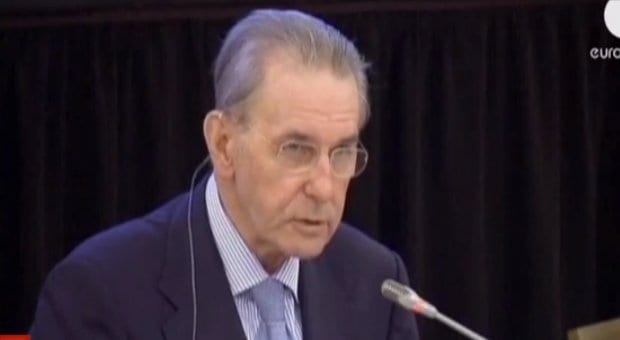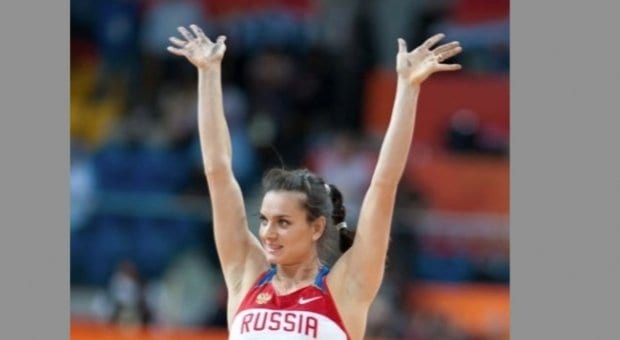
IOC president Jacques Rogge to step down from the position Sept 10. Credit: euronews
“We will consider it in due time.”
That’s the word from outgoing International Olympic Committee (IOC) president Jacques Rogge on whether Russian pole vaulter Yelena Isinbayeva will keep her role as an IOC ambassador, following her stated support of her country’s anti-gay laws, Agence France-Press reports.
“We consider ourselves like normal standard people; we just live with boys with women, women with boys,” Isinbayeva said last month at the World Athletics Championships in Russia. Isinbayeva had also criticized two Swedish athletes for their rainbow-nails protest of her country’s anti-gay legislation. She later said her comments were misconstrued.
Rogge, who appointed Isinbayeva as an ambassador in 2010, indicated at his final press conference, on Sept 4, that Isinbayeva’s continuation in that role was still up for discussion.
The Russian Olympic Committee has also appointed the two-time Olympic champion as mayor of one of the two Sochi Athletes Villages.
Rogge defended the IOC against criticism that it wasn’t being tough enough on Russia over its anti-gay policies.
“One should not forget we are holding the Games in a sovereign state, and we have no involvement in their internal affairs,” says Rogge, who is stepping down after 12 years as president on Sept 10.
“With regard to using our moral authority, we have clearly on various occasions expressed our views on situations in countries, but I would add we are restricted in what we can say or do as we are a guest in another country.”
The IOC had requested clarification of the Russian legislation, and Rogge had professed to be satisfied with the “strong written reassurances from the Russian government that everyone will be welcome at the games in Sochi regardless of their sexual orientation.”
In his letter to the IOC, Russia’s deputy prime minister, Dmitry Kozak, echoed previous statements by other Russian officials that the so-called gay propaganda law, enacted in June, focuses on the “restriction of information that promotes non-traditional sexual relationships among children” and doesn’t impose restrictions on sexual orientation. The Associated Press says Kozak emphasized that the Russian constitution “prohibits discrimination against anyone based on sex, race or religion.”
But even in the midst of the call for clarification, the IOC threatened to discipline athletes who flout its charter rules against propaganda by supporting gay rights at the Sochi Games.


 Why you can trust Xtra
Why you can trust Xtra


